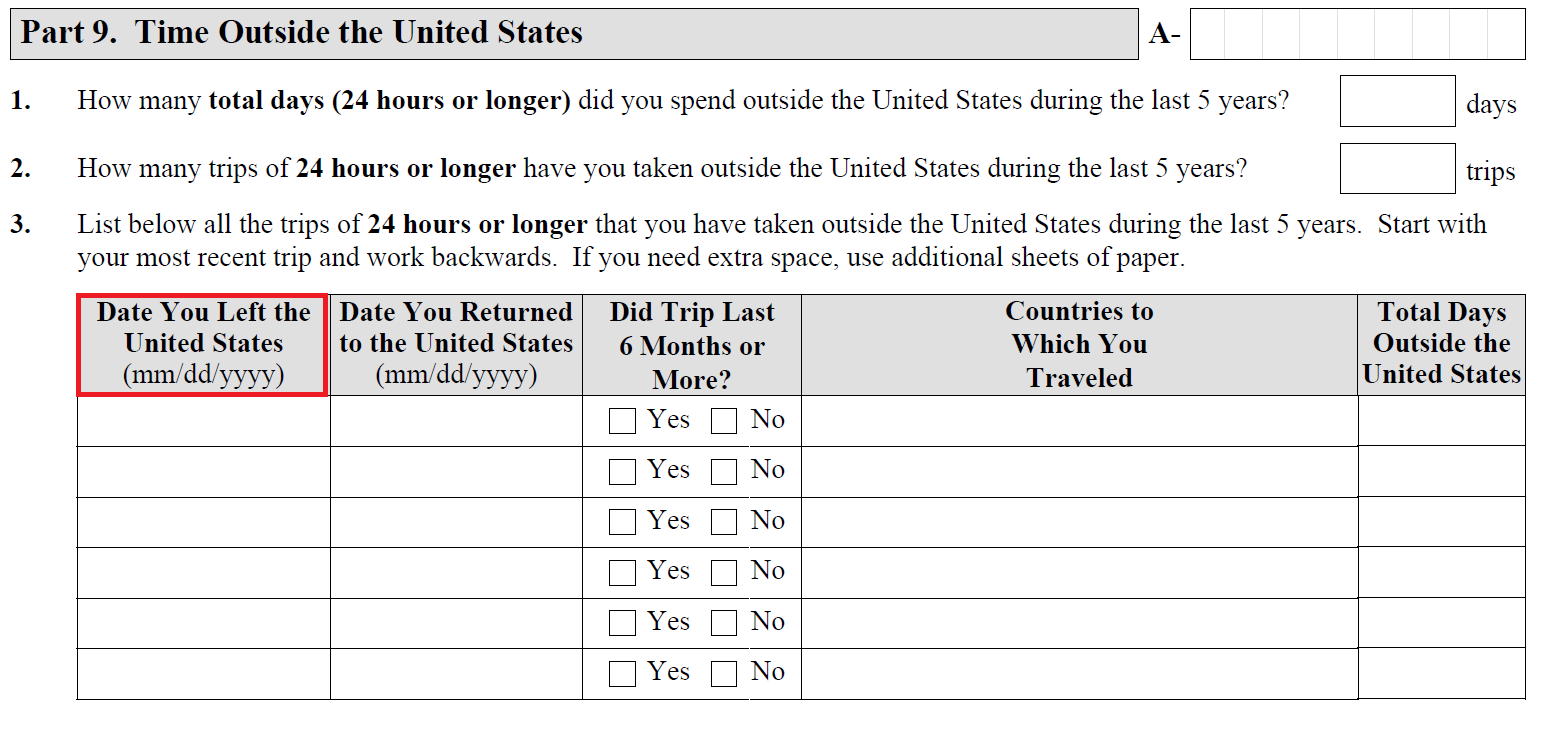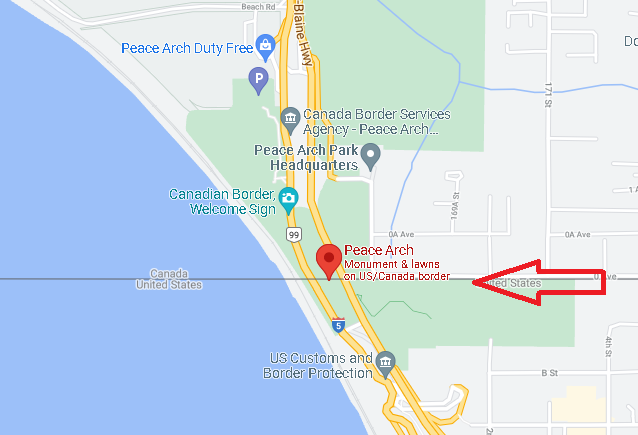When applying for U.S. citizenship, in the N-400 Application for Naturalization Form (mirror), in the travel history section, one has to indicate the "Date You Left the United States (mm/dd/yyyy)", as shown below.
At one point during the past 5 years, I entered Canada from the US by car via the Douglas Border Crossing and passed the border at around midnight. The border passing was slow because I got questioned and my car got subsequently searched for about an hour.
I don't know what counts as "Date You Left the United States". Is it:
- The time when I drove past the US/Canada physical border? (i.e., when I drove past the Peace Arch)
- The time when I first initiated contact with the Canadian border agent at the immigration booth that looks like a toll booth?
- The time when I finished my interview with this first Canadian border agent I met?
- The time when the Canada border agents finished questioning me and searching my car at the secondary inspection, then authorized me to enter Canada?
The Canadian officer didn't stamp my passport and I entered without a visa a French citizen. I didn't meet any US border agent (they don't check the exits aside from, I assume, videotaping the area). My I-94 doesn't have a record of it.
N-400 Application for Naturalization Form (mirror), in the travel history section:
The Peace Arch is right on the Canada/US border and a few hundreds meters before one reaches the Canadian border agents on the Canadian side at the Douglas Border Crossing when driving from the United States:

